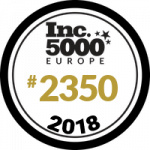Summary In the contemporary business environment, digital procurement is becoming increasingly popular and sought after by businesses around the world. The relationships …
How cost reduction consulting boosts profit margins without sacrificing quality
What is the importance of maintaining quality while cutting costs?
Businesses are constantly seeking ways to enhance profitability, the challenge lies in cutting costs without compromising the quality that customers expect. 94% agree that quality management is a key driver of customer satisfaction. This statistic underscores the undeniable link between quality and customer loyalty; when customers are satisfied with a product or service, they are more likely to return and recommend it to others.
Cutting costs while maintaining quality is crucial for long-term success. Organisations that prioritise quality alongside cost reduction not only retain customer satisfaction but also enhance their brand reputation. A strong brand reputation fosters customer trust and loyalty, which are invaluable in a competitive marketplace. When businesses sacrifice quality in the name of cost-cutting, they risk alienating customers and tarnishing their reputation, ultimately leading to lost sales and diminished market share.
There is a common belief that reducing costs invariably leads to lower quality. This misconception can create a cycle where businesses feel pressured to choose between profitability and customer satisfaction. However, expert consulting can help organisations navigate this pitfall by providing tailored strategies that emphasise efficiency without sacrificing quality. Through data-driven insights and best practices, businesses can identify areas for cost reduction that do not impact their product or service quality, enabling them to achieve sustainable growth.
Maintaining quality while cutting costs is not only possible but essential for businesses aiming to thrive in today’s competitive environment. By recognising the importance of quality management and leveraging expert consulting, organisations can balance profitability and customer satisfaction, ensuring long-term success.
How do cost reduction consultants identify opportunities for savings?
43% of leaders actually achieve the level of savings they set out to in the first year of cost reduction efforts. A significant reason behind this shortfall is the setting of unrealistic targets. Organisations often underestimate the complexities involved in optimising costs while maintaining quality, leading to frustration and missed goals.
Evaluating existing procedures
The journey to achieving cost reduction targets requires a clear assessment of current processes and a commitment to leveraging data analytics. To address these obstacles, consultants perform comprehensive evaluations of a company’s operations, spanning from procurement to production. This in-depth analysis provides them with a clear perspective on current processes and helps identify inefficiencies that may be depleting resources. By outlining workflows, examining supplier relationships, and assessing production techniques, consultants can identify specific areas for enhancement. This thorough examination of operations not only reveals potential cost-saving measures but also establishes a basis for formulating realistic and attainable objectives.
Leveraging data
Analytics are essential in revealing cost-saving possibilities without sacrificing quality. Consultants leverage data analytics to extract insights regarding spending behaviours, inventory statuses, and operational efficiency. By scrutinising data and key performance indicators (KPIs), they can detect trends and discrepancies that signify inefficiencies or opportunities for enhancement. This data-centric methodology empowers organisations to make well-informed choices, concentrating on cost-reduction strategies that are compatible with quality management principles. For instance, by fine-tuning inventory levels or renegotiating supplier agreements based on performance metrics, companies can achieve substantial savings while maintaining product quality.
By working with expert cost reduction consulting, organisations can set realistic savings goals and uncover meaningful opportunities for improvement, paving the way for sustainable success.
What are the strategies used by cost reduction consultants to boost profit margins?
Cost reduction consultants play a crucial role in helping businesses enhance their profit margins by implementing strategic approaches tailored to their specific needs. Companies that adopt a strategic approach to cost reduction can typically achieve 5-25% in savings.
Streamlining processes
Consultants assist businesses in optimising workflows and eliminating waste, significantly improving efficiency and reducing costs. Through thorough analyses of existing processes, they pinpoint bottlenecks and redundant steps that hinder productivity. By implementing lean principles, organisations can focus on value-adding activities while minimising or eliminating those that do not contribute to the final product. This streamlining not only enhances operational efficiency but also generates cost savings, positively impacting profit margins and enabling businesses to allocate resources more effectively.
Renegotiating supplier contracts
Renegotiating contracts and consolidating suppliers is an impactful strategy employed by consultants. They assess existing supplier relationships and scrutinise contract terms to identify potential improvements. By negotiating better pricing, payment terms, and delivery schedules, businesses can achieve more favourable terms that lead to substantial cost savings. Consolidating suppliers allows for volume discounts and streamlined processes, further enhancing savings and operational efficiency. This dual approach ensures organisations maintain strong supplier relationships while optimising their cost structure.
Automating and leveraging technology
Implementing the right technology tools and automating processes can yield significant cost savings while improving quality. Consultants evaluate an organisation’s technological landscape and solutions that align with strategic goals. By automating routine tasks such as invoicing and inventory management, businesses can minimise manual errors and reduce labour costs. Leveraging advanced analytics and machine learning offers insights that drive smarter decision-making, optimising resource allocation and enhancing performance. This technological advancement positions firms for future growth and efficiency.
Reducing waste and rework
Consultants emphasise the importance of reducing errors and inefficiencies that contribute to costly rework or excess materials. By implementing quality management practices and continuous improvement methodologies, they assist firms in identifying the root causes of waste and developing effective strategies for mitigation. This may involve training staff on industry best practices, enhancing communication across teams, or investing in more precise equipment. By focusing on reducing waste and rework, businesses can lower costs and improve product quality, leading to higher customer satisfaction and loyalty.
Cost reduction consulting employs a multifaceted approach to boost profit margins by streamlining processes, renegotiating supplier contracts, leveraging technology, and minimising waste. These strategies empower organisations to achieve sustainable cost savings while maintaining the quality that customers expect, ultimately leading to long-term success.
Get in touch with Kronos Group to boost profit margins without sacrificing quality
The pressure to reduce costs while maintaining product quality is more significant than ever. Unfortunately, nearly half of cost-cutting initiatives fail, often due to unrealistic targets and short-sighted strategies.
However, with the right approach and expert guidance from Kronos Group, businesses can successfully navigate this challenge. Our dedicated team specialises in spend optimisation consulting, employing proven strategies that enhance profit margins without compromising quality. From streamlining processes and renegotiating supplier contracts to leveraging technology and reducing waste, we offer tailored solutions that drive sustainable savings.
Don’t let your cost-cutting efforts fall short. Reach out to Kronos Group today, and let’s work together to achieve your financial goals while ensuring your customers receive the quality they deserve.
Fighting the effects of inflation with sourcing and procurement consultants
Stay up-to-date on the latest insights on procurement, finance, and project management.
Summary Strategic procurement has become a necessity in today’s business world and organisations try to remain competitive. Having the right procurement strategies …
Summary The world of consulting has been undergoing a massive transformation and management consulting jobs are experiencing the impacts of these changes. …
FAQ
A cost reduction strategy in consulting involves identifying and implementing methods to lower operational expenses while maintaining or improving quality and efficiency. Consultants analyse business processes, supplier contracts, and resource allocations to develop tailored solutions that drive sustainable savings without sacrificing customer satisfaction.
An example of cost reduction is a company renegotiating contracts with suppliers to secure lower pricing or better payment terms. This can lead to significant savings, especially when combined with consolidating suppliers, optimising inventory management, or streamlining production processes to eliminate waste.
Cost reduction can be considered a Key Performance Indicator (KPI) as it measures a company’s ability to lower expenses while maintaining operational effectiveness. Businesses often track cost reduction percentages, comparing current expenses against historical data to assess the effectiveness of their cost-saving initiatives and overall financial health.














